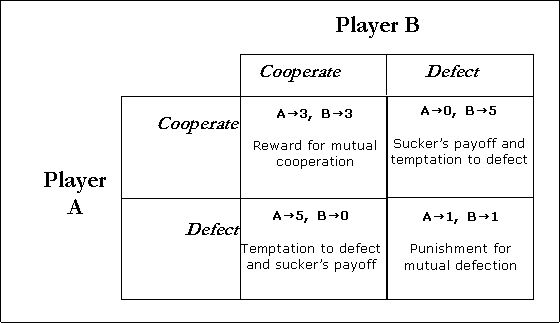
tips "Mental learn negotiating skills"
A good to learn negotiating skills has focused not only on the Tools & Tricks. It is always important the mental preparation. the
the
Listed below are several ideas to interior settings in the context of a conscious mental preparation are set forth.
Should executives to cooperate? Or you should generally be suspicious? Should managers be proactive "with the saber rattling?" Or does it belong to Führungsjob, unconditionally trust to donate? the
From the well-known Gefangenedilemma" can be insightful principles can be derived. But lets start at the beginning...
"Two perpetrators of a serious Crime, to be arrested and separately interrogated. Since there is no Tatzeugen, only the confession is at least an offender for convictions of both perpetrators. Admits only one perpetrator, he goes due to a...
Negotiating is an Everyday thing!
children have to negotiate and want your personal goal quickly realize. The daughter wants more pocket money, couples negotiate, if different ideas about the resort are etc Although negotiations are an important part of our everyday life is it often lacks the competence, in as short time as possible viable solutions.
Bazaar method, Harvard method
are Generally well-known two by means of negotiation. On the one hand, there is also the option of haggling (Bazaar method), in which the two parties are in a mostly inflated price to start, and then successively on a for both parties reasonably acceptable price to some. The other way is the hard Position: It insists a party on your fixed idea. Either, the idea is accepted by the other party or the negotiation fails (Hard-Position method). There are not only these two ways! Helpful is the third way, which is also called a negotiation of the Interessensausgleichs is known. This practice is highly successful model worldwide as the Harvard Negotiation project known. Illustratively the following example:
Two sisters, Monika (14) and Sabine (12) are in the kitchen and argue to an Orange. The mother is added. What will you do? It will probably be the Orange take, and middle parts. The question is whether this solution is optimal. An alternative approach is for the mother would be in the interests of the two to question. Monika may need only the peel of the Orange to make a cake to bake. Sabine wants only a juice presses – With an exact division of the Orange would be two only half served!
The Harvard concept
The Harvard concept is a fundamental distinction between two communication layers. On the one hand, the thematic level (i.e. the level of the negotiated Agreement itself) and on the other hand, the level of the Verhandlungsweise (Meta-level). This leads to the following principles:
Definition of a BATNA
The Harvard method discourages bad Instruments. During the trial, less in "Abschlussdruck" to come, will do so before the hearing a personal Alternative (Best Alternativ) outside of a hypothetical agreement (Negotiation Agreement). The effective negotiation offer is now during the negotiations with the private Alternative are compared. Based on this comparison, the offer is then accepted or rejected.
- Hypothetically accept the claims of the opposing party according to the spoken evaluate, and the unacceptable consequences explain
- The Verhandlungspartei ask for advice on how to deal with the inconvenience handle
- the involvement of an independent third party,
dealing with pressure and Tricks
- Tricks in negotiations to immediately appeal to you, the Wind from the sails to take. For example: "The sun seems to me in the face. I would like to change the room.“
- to break off negotiations - to the Opposite, on a factual Verhandlungsart return. Here you can Verhandlungsart itself become a subject of bargaining.
- constant personal attacks by a Verhandlungspartners can be a skillful Dodge these attacks and simultaneous references to factual aspects of the negotiations at this level.
- pressure, threat Verhandlungsabbruch (BATNA!) or Judo



